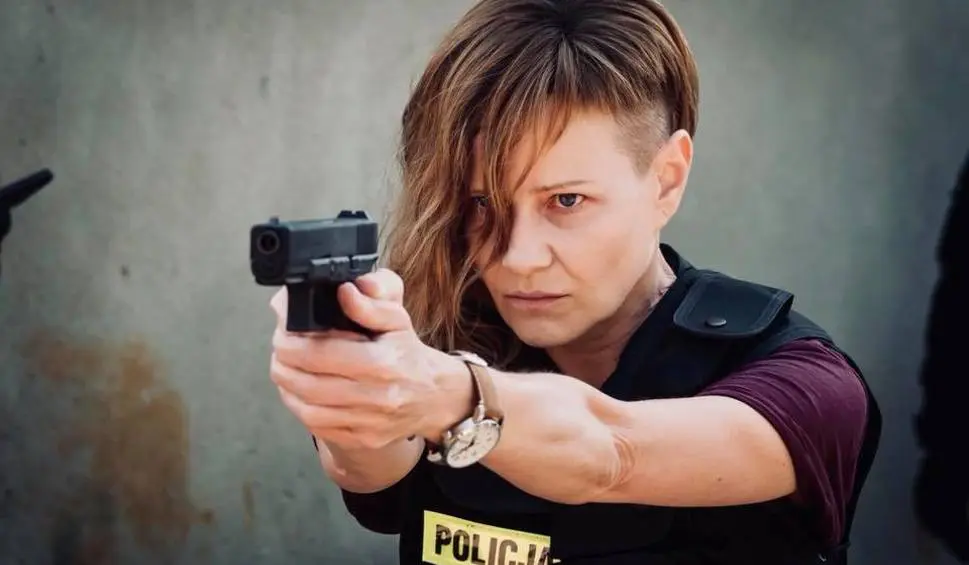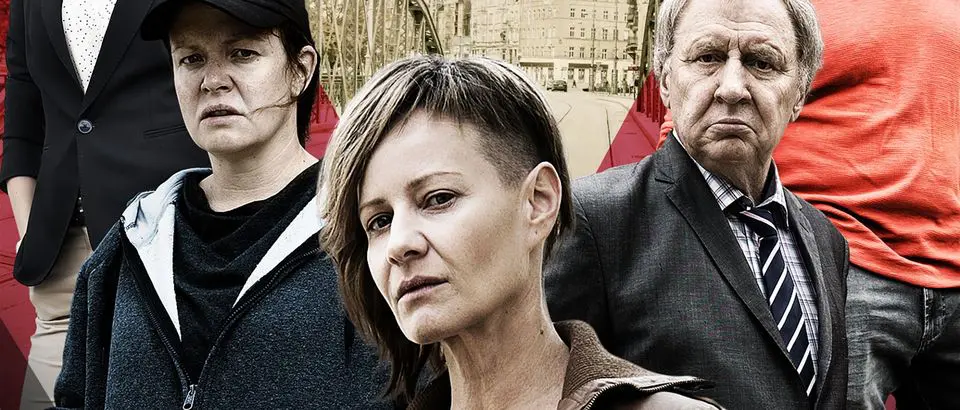Summary
Plagi Breslau (Plagues of Breslau) is a serial killer detective thriller: bloody, nasty, fast-paced and thoroughly Polish, written and directed by Patryk Vega. It’s exciting, and has a great story, familiar in parts, but only just.
Plagi Breslau (Plagues of Breslau) opens with a parcel being found in a market. It’s made up of a sewn-together hide of a high-quality bull, and compressed inside the parcel is a man. Helena Rus (Ma?gorzata Ko?uchowska) arrives rapidly on the scene and is joined shortly after by a more experienced officer from Warsaw (Daria Widawska). She recognises straight away that the crime copies a pattern from local history which leads her to anticipate more over the next few days. And so begins a swift serial sequence of shocking and theatrical deaths, which keep the police on their toes and shake up the city of Breslau.
The two main characters are interesting, well drawn and well-acted. Rau is the spiky-but-slightly-fragile sort, but what most people see is that she’s fearless. Widawska is carrying some heavy baggage and she is both energetic and clever. Both of them have depths we only start to see as the film progresses.
All the other people, mind you, are either non-characters or mild caricatures. That said I was expecting more clichéd characters after the previous film directed by Patryk Vega. Plagi Breslau is the second I’ve seen by Vega, though he is renowned for several earlier films in Poland, such as Botoks and Pitbull. This new film is much less pulpy than last year’s Kobiety Mafii, and the more serious style works very well. That said, the plot is somewhat farfetched and they do cram a lot into ninety minutes, so it’s not exactly highbrow. But the plot is so exciting and full of surprises that these issues don’t matter at all.

One of the other positive points is Plagi Breslau‘s sense of place. There are no glamorous cruise ships of penthouses like in Kobiety Mafii; no-one is trying to leave their heritage behind. The film features authentic-looking working-class interiors and a market, as well as streets and sports venues that bring the city to life.
But let me warn you, Plagues of Breslau is gory: I’m talking about gruesome, staged deaths and explicit autopsy scenes. Apart from a couple of brief exceptions, we don’t see the deaths take place, but the discovery of them: we’re talking Se7en levels of nasty, not Saw, after all. That is, a film like Se7en with primarily female roles and less studied contemplation.
One of the better Polish films I’ve seen: recommended.




